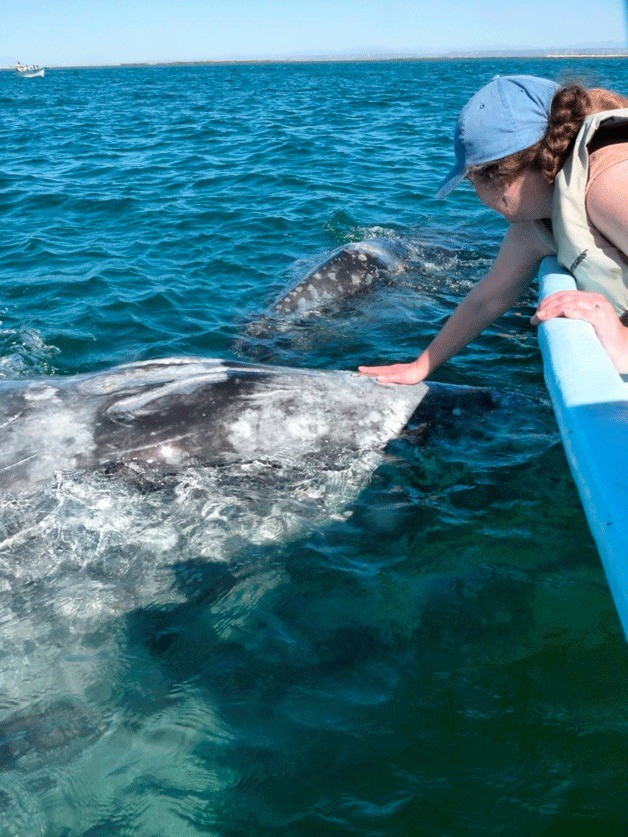The folks at Whidbey Watershed Stewards and Orca Network are shouting “Bon apetit! And welcome back to eat” to all the resident orcas of Puget Sound.
They will hold a celebration in honor of the return of the main course for orcas in Puget Sound: salmon.
The first ever “FinFest — An Orca/Salmon Homecoming Celebration” will be from noon to 9 p.m. Saturday, Oct. 9 in and around Freeland Hall.
The all-ages event will feature games and activities, hands-on art experiences, displays, films, storytelling, music and a silent auction for both young and old.
The survival of the beloved orcas of Puget Sound is closely tied to the survival of Chinook salmon. This festival will highlight and celebrate the links between salmon and whales, and serve as a welcome for the return of the salmon and the Southern Resident orcas to Puget Sound this season.
Resident orcas eat mostly salmon, though they’ll feed on smaller, deep-dwelling fish if they must. But they prefer salmon, which are
96 percent of all the fish they eat in the fall and spring seasons.
Chinook salmon, in particular, make up 65 percent of the salmon observed being eaten by the Killer whales. When foraging for salmon, residents use a sweeping technique, spreading out the pod during the hunt. Echolocation keeps the pod in constant communication to locate the fish, which are generally eaten individually, though sometimes a mother and calf will share a salmon.
FinFest will be full of such interesting tidbits about the whales and their important diet, and aims to entertain curious folks with a variety of special guests.
Storyteller Jeff Hogan will present his “Killer Whale Tales” for children of all ages who wish to know more about the orca/salmon connection.
Jeff Guidry of Sarvey Wildlife Care Center will bring “Freedom,” a bald eagle, for a close-up look at the iconic American bird. More salmon tales will be told by storyteller Jill Johnson, and musicians Russell Clepper and Sarah Dial Primrose will provide the day’s musical entertainment. Also, woodcarver Pat McVay will sculpt a salmon or an orca with his chainsaw on the grounds outside Freeland Hall.
At 4 p.m., University of Washington professor of earth and space sciences and a 2008 MacArthur Fellowship winner David Montgomery will tell the history of Chinook salmon populations and their role as “King of Fish.” His 2003 book of that title looks at the history of attitudes and actions toward salmon from Europe to the Puget Sound.
“Salmon are amazing,” writes Montgomery. “Just a few feet long, they travel thousands of miles to complete their life cycle. They can repopulate streams devastated by volcanic eruptions. Given half a chance, they can take care of their own existence quite well and expand to fill the available habitat.
“But for a century and a half we have sustained a pace of landscape-scale changes that salmon have never experienced before, except for short time periods and across limited portions of their range. By disturbing everything everywhere all at once, we risk leaving them no sanctuary from which to repopulate depleted rivers and streams.”
The evening will also feature Brad Hanson of the National Oceanic Atmospheric Administration’s (NOAA) Northwest Fisheries Science Center, who leads field studies to determine the dietary needs of Southern resident orcas. Hanson spent most of this past summer on the water studying the habits of foraging orcas.
A (non-Chinook) salmon barbeque will be served for $15 per person at
5 p.m. directly following Montgomery’s talk. The salmon will be caught and prepared by chef Dave Anderson. Box lunches will also be served during the day for $8, sponsored by Whidbey Island Nourishes.
Admission to FinFest is $5; children younger than 12 get in free.
Additional donations to the Orca Network and Whidbey Watershed Stewards are welcome.
Click here for the Orca Network or click here for Whidbey Watersheds Web site.


